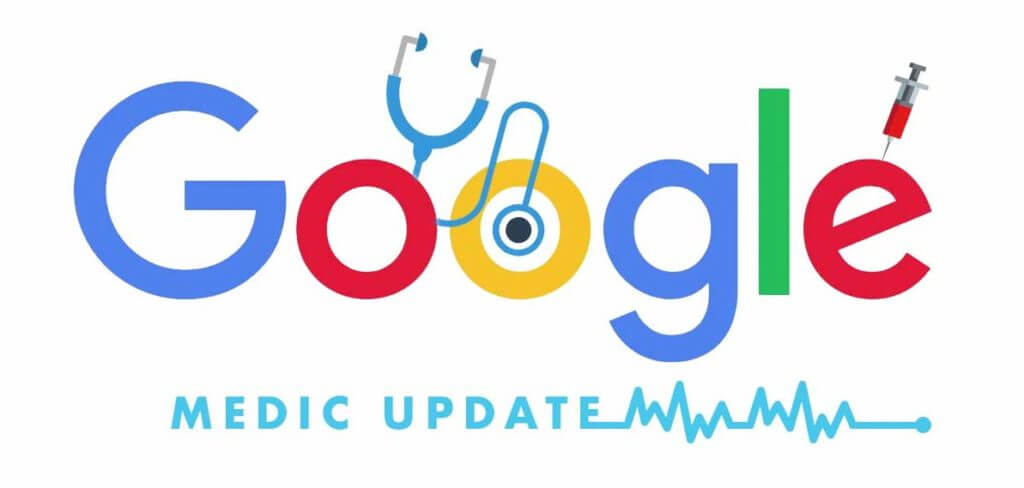Google’s ranking algorithms receive numerous updates every year to present users with reliable and relevant results.
However, in a bid to emphasize high-quality, authoritative content, Google often keeps webmasters and SEO Professionals in the dark about the impact these updates have on their websites.
Once the dust settles after a new update, affected sites work tirelessly to understand the fastest route to recovery.
Take, for instance, the latest November 2019 update. No official announcement was made but the local SEO community is abuzz with chatter about decreased business rankings in Google Maps.
Now, Google claims these updates aim to regain website rankings for popular industry-related search terms. To most users, however, these updates are a mystery.
One such update was the second core update that affected SERP rankings. The update was rolled out on 22 July, but most sites felt the change from 1 August 2018.
Originally unnamed, it came to be known as the Google Medic Update after SEO guru Barry Schwartz traced its impact to websites associated with wellness, medicine, and health. Effects of this update are still felt by various websites.
The algorithm change rewarded or devalued website rankings based on various factors. In fact, reports suggested that nearly 56 percent of sites lost 5 percent visibility in Google SERPs. By disproportionately impacting health websites, Google’s Medic update caused a stir among content creators, SEO marketers, and site owners.
According to Google, the system changes benefitted pages that were earlier “under-rewarded.”
Overview of the Google’s Medic Update
Google’s Medic Update made it abundantly clear that website owners were not to blame for the dip in rankings. Rather, it was the lack of content that led to the issue. The worst part is, it was not immediately obvious how the change could be counteracted to boost search rankings.
However, Google’s Medic Update was clear proof that Google was favoring websites that featured quality content written by trustworthy experts and good domain authority.
Google stated that Google’s Medic update was a global update, which meant it impacted every industry and website.
Rankings were altered considerably. Moz claimed that popular sites like Betty Crocker, Men’s Health, and Buzzfeed suffered a loss of up to 59 percent in search position. On the other hand, Glass Door gained 53 percent more traffic.
The clear divide between “winners” and “losers” raised several concerns regarding the update.
According to data collected by Sistrix, numerous domains lost traffic and rankings. Here are the top 20:

Many others experienced gains as a result of the update. Here are the top 20 Google’s Medic Update winners:

Why Google Released the Update
Google intended to improve search result accuracy by listing results as per the user intent behind the search.
Thus, the Google’s Medic update impacted on-page optimization, where Google focuses on design, experience, and content as part of the overall ranking factors.
So a site developed entirely out of copycat content, scraped content, or content without any value to readers will have trouble ranking.
If you wish to offer valuable content to your visitors, you should review your website for possible improvements.
The question is, was Google wrong in announcing the update as a “broad” one? Well, not exactly! Niches and industries other than healthcare and medical were affected heavily by the Google’s Medic Update, including financial, legal, and news websites.
A quick perusal of the Search Quality Evaluator Guidelines established by Google reveals that medical content is closely scrutinized now. But the Google’s Medic Update signaled the evolution of SEO where content quality is a priority for various kinds of websites. And it all comes under the umbrella of E-A-T.
Understanding E-A-T
This is an acronym for “Expertise”, “Authoritativeness”, and “Trustworthiness” – the three main factors that Google uses to determine the quality of websites and pages.
While the company has a reputation for being vague, it is no secret that Google uses these metrics to gauge quality.
Google intends to offer users the most relevant content on the Internet. But it veers more towards content that is peer-reviewed or written by field experts who can provide value realistically.
Google relies on different factors to determine what ranking a site deserves, including the algorithm’s past search history and knowledge of user preferences, along with external or third-party backlinks of the website.
So, websites that frequently appear on the first page of the search results for industry phrases are advocated by Google.
Thus, Google offers public influence to websites.
Personal data from Barry Schwartz reveals niches most affected by Google’s Medic Update:
- Health – 41%
- E-Commerce – 16%
- Business – 10.8%
- Finance – 7.3%
- Technology – 5.9%
- Entertainment – 3.8%
- Travel – 3.5%
- Directory – 2.4%
- Coupon/Deal – 1.4%
- Insurance – 1.4%
- Adult – 1.4%

E-A-T not only affects medical details, but Google prioritizes it above all else for medical content. These factors also take precedence for financial advice, news articles, and informational pages.
Collectively they are called YMYL (Your Money Your Life) content that is influential and can significantly affect a person’s well-being and health (Your Life) or their finances (Your Money).
This may be a page providing medical advice that causes a user to self-medicate. Or, it could be a web page that offers financial advice to herd leaders towards helpful decisions pertaining to spending, loans, and debt. Website most affected by the Google’s Medic Update include:
- Websites offering medical or health-based information
- Those offering financial or legal advice
- Those undertaking shopping or financial transactions, and collecting payment info
- Soliciting personal details from users, such as ID numbers
- Publicizing information or news about governmental, social, and political issues
- Making recommendations for life-altering decisions, like adoption
The truth is, Google stays aware about the way YMYL content is used for marketing.
This type of content manipulates users into making the right purchasing decisions based on the content creator or website’s informational advantage and their vulnerability.
This holds especially true for the medical industry, where users increasingly use Google over their doctor. The Telegraph even published an article stating how seven percent of daily searches on Google are health-related.
Google wants to maintain this standard for all websites on the Internet. This explains the reason why a majority of health blogs failed to make the cut when the Medic Update came out in 2018.
Recover from the Google’s Medic Update
So imagine your website is affected by the Google’s Medic Update. What’s the solution? Given how important E-A-T is, you should have all three factors on your radar while developing content and conducting website audits. But if you have to focus on just a single measure, go for Expertise.
Why so? Because expertise impacts two other ranking factors. A web page written by a professional, like a doctor, will have increased authority, which will automatically improve the trustworthiness of your content as well. Plus, it’s easier to tackle the Expertise metric, based on whether or not you have the knowledge as well as the required budget for content marketing.
Make it a point to:
Add an ‘About Us’ Section
Your business, company, or website should ideally have a separate page to showcase your industry expertise. Mention any accreditations, awards, and industry recognitions you’ve received to boost your value.
Include Comprehensive Author Bios
Every authoritative website should receive support from reliable content authors. And, don’t forget to add detailed bios for every author wherever it is relevant, to play up their expertise and credibility. In some cases, the ‘About Us’ page doubles up as the author bio section.
Keep Everything Updated
Developing content is not a one-time task. Especially in legal, medical, and financial niches, it is important to display relevant and timely information.
Highlight Positive User/Customer Reviews
Always approach reviews with caution. The amount of reviews on your website should offer a clear image of your website’s credibility. Encourage users, customers, and clients to say something about their experiences of using your website or services.
Post Quality Content on Your Site
The best content is always created keeping user intent in mind. Make sure every piece of content on your site answers a specific user question and provides the necessary answers, where and when they require them.
Recognize User Demands
Try to answer search queries and terms directly. Tools like Answer the Public or ‘People Also Ask’ from Google help define helpful titles and topics. Opt for value-added and logical linking structures. Your content is of no use if the user is unable to locate it.
Ensure that every new content is placed logically within the architecture of the website and stays accessible through different internal links.
Stay Current on SEO Best Practices
Maintaining SEO best practices is a great way to maintain a high SERP position. Ensure your on-page SEO and technical practices are aligned. Some of the most important things to keep in mind include:
- Never duplicate; come up with unique titles for your pages
- Create descriptive metadata containing clear CTA
- Minimize page loading speeds
- Use data highlighter or schema mark-up for rich snippets
- Structure web pages with logical subheads
- Add explanatory alt text and image tags
- Implement a mobile responsive design
Concluding Remarks
Google is doing all it can to ensure deserving websites appear at the top of the SERPs.
Irrespective of the impact the Google’s Medic update had on the website, the path to the top of the search rankings is pretty much the same. It’s just that you’ll have to put in more effort to reach there.
There are no quick fixes. But you can prepare for higher rankings later by sticking to Updated Quality Raters Guidelines.




